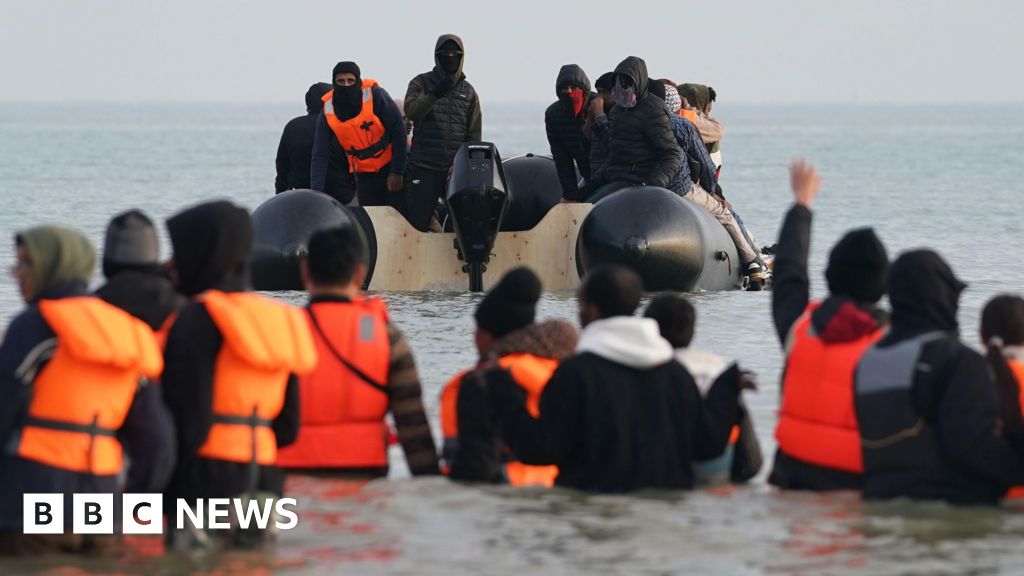Understanding Small Boat Channel Crossings: Origins and Statistics Explained
The issue of small boat channel crossings has become a significant topic in immigration discussions, particularly within Europe and the United Kingdom. As more individuals attempt to navigate dangerous waters to seek refuge or better opportunities, it is essential to delve into the origins of this phenomenon and examine the relevant statistics that highlight its implications.
The Origins of Small Boat Crossings
Over the past few years, there has been a noticeable increase in the number of individuals attempting to cross the English Channel in small boats. This surge can be attributed to several factors:
Conflict and Persecution: Many individuals fleeing war-torn regions or oppressive regimes see perilous boat journeys as their only option for safety. Countries such as Syria, Afghanistan, and parts of Africa have seen a rise in displaced individuals seeking asylum.
Economic Factors: Economic instability in various countries often forces individuals to seek better opportunities abroad. The hope of finding employment and a stable life can drive people to undertake dangerous crossings.
Human Trafficking: Unfortunately, criminal organizations exploit vulnerable individuals looking for a way to escape. These smugglers often charge exorbitant fees for unsafe passage across the Channel.
Statistics on Channel Crossings
The statistics related to small boat crossings are staggering and reflect the urgency and desperation of many potential migrants:
In recent years, tens of thousands of individuals have attempted to cross the English Channel in small boats. In 2022 alone, reports indicated that over 45,000 individuals made the crossing.
The risk of crossing is evident, with numerous incidents reported of capsizing and rescues by authorities. Tragically, deaths at sea have also occurred, underscoring the perilous nature of these journeys.
Government responses to the increase in crossings have included heightened patrols and stricter immigration enforcement. However, many argue that these measures often fail to address the root causes driving migration.
Impact on Immigration Policies
The rise in small boat crossings has prompted discussions around immigration policies in the UK and Europe as a whole. Some key developments include:
Reform Initiatives: There have been calls for comprehensive immigration reform to address the complexities surrounding asylum seekers and illegal crossings. Initiatives aim to establish safer routes for individuals seeking refuge.
International Cooperation: Countries are increasingly recognizing the need for collaborative efforts to manage migration effectively. This includes sharing resources and intelligence to combat human trafficking networks.
Public Sentiment: The public’s perception of immigration and small boat crossings significantly influences policy decisions. As narratives around immigration evolve, political leaders must navigate these sentiments carefully to maintain public support.
Looking Ahead: The Future of Small Boat Crossings
As the situation continues to develop, several factors will likely influence the future of small boat crossings:
Global Events: Ongoing conflicts, climate change, and economic challenges will likely continue to drive individuals to seek asylum in more stable nations.
Policy Adaptations: Governments may need to adapt their policies to create more humane and effective responses to immigration challenges. This includes addressing the needs of refugees while ensuring safety and security.
Community Support: Grassroots movements and community organizations play crucial roles in supporting migrants and advocating for their rights. Their efforts can shape public opinion and influence policy changes.
In conclusion, the complexities surrounding small boat channel crossings highlight the pressing need for a multifaceted approach to immigration. Understanding the origins, statistics, and potential future developments will be vital in shaping effective policies that address both humanitarian needs and national security concerns. As discussions around immigration reform continue, it is essential to prioritize compassion and understanding for those seeking a better life.










